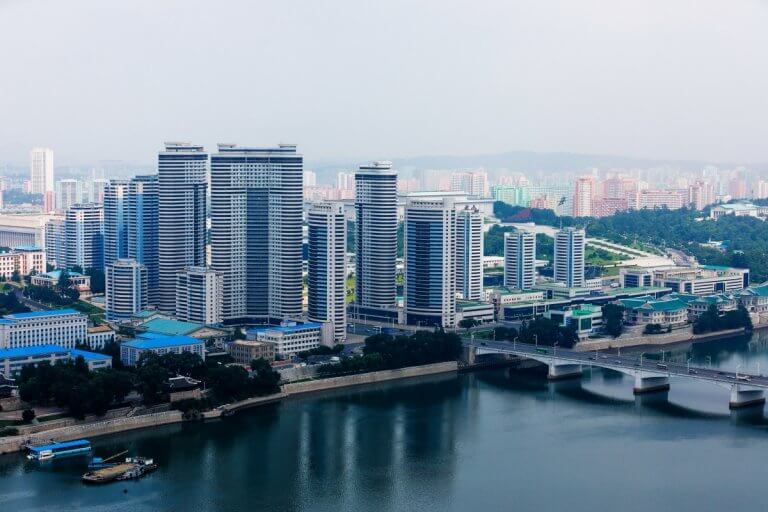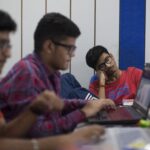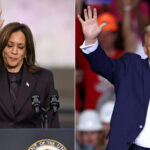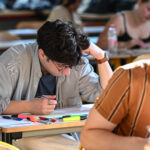
Life in North Korea is somewhat of a mystery to those who don’t live there, known as one of the world’s most ‘secretive’ countries.
Due to the country keeping itself isolated from outsiders and limiting internet access, it’s difficult to fully understand what life is really like for North Koreans.
The country has been condemned worldwide for maintaining extreme poverty, prison camps, and for developing nuclear weapons.
However, the tides are slowly turning. Kim Jong-un, Supreme Leader of North Korea, started this year seeming ready to work with Trump on denuclearization and is currently in talks with him at the Kim Trump Summit in Vietnam.
Last year, amid criticism and pressure over human rights violations, it seemed that the country was determined to prove that it is slowly opeing up and allowing its population greater access to information.
Local media reported on a new North Korea-based Internet Protocol television service, and the development of their own smartphones and tablets.
Despite this, a report published by Korea Institute for National Unification detailed how North Korea still cracks down on its people’s right to share information.
Social media sites like Facebook and Twitter are still banned, and authorities use radio signal blockers and advanced radio detection equipment to crack down on illegal mobile phones and prevent the spreading of information outside the country.
Understandably, the country is not a popular study abroad destination, but an international student who is currently pursuing his Master’s in his country recently shed light on his experience there.
Despite the government’s rigid control over the sharing of information, Alek Sigley, a 29-year-old Australian studying romance in North Korean literature, told Pri’s The World in a Skype interview that he has been able to use his social media accounts freely.

Australian Alek Sigley has been in North Korea for several years, and shares his experiences via social media and his blog. Source: News.com.au
He said that so far, “authorities have neither complained about his posts nor censored them”, and he also has the freedom to roam around the capital without a government minder or visit shops that are usually off-limits to tourists.
He made a point to state that studying there does not mean he supports or champions the nation’s dictatorial regime.
He said, “Simply going to a place and being there doesn’t mean I support everything about the politics there. Me visiting the United States doesn’t mean I support the war in Iraq.”
Sigley also observed that “attitudes toward the US government seem to be loosening up a lot”, compared to a couple of years ago.
In 2017, one North Korean student told Sigley that he believed that before the Korean War, there were no flies in the country and that they were brought in by the American imperialists.
But now, there’s a growing sense of hope that US-DPRK [Democratic People’s Republic of Korea] relations can improve, and some of the anti-US slogans and propaganda billboards have been taken down.
“Now some students say this is a new era. People are also using Trump’s title — saying President Trump — instead of just saying Trump. They’re just recognising him as an important statesman. It’s a small thing but, in the north, they’re very fixated on some of these details.”
Sigley is also an entrepreneur, operating a tour business in, Tongil Tours, where he also blogs extensively on consumer habits and life in North Korea.
Here are some highlights from his enlightening experience as an international student in North Korea, providing a rare glimpse into everyday Pyongyang and how it’s evolving.
The application process
How does a non-citizen of North Korea even apply for a place at a local university? It’s not easy, but Sigley was able to leverage on his connections.
He told The World, “You need connections. There’s not really an open application process. The university has a website but if you go there, you won’t find any information whatsoever on how to apply. But if you’ve already started a business and made connections, then it becomes possible. They have to decide you’re trustworthy.”
Since he’s doing his Master’s, he needed to show proof of his undergrad certificate, a health examination, a police certificate stating he don’t have a criminal record in his home country, as well as a letter from a Korean faculty member in his undergrad university in Australia who vouched for his language ability.
Surprisingly, they never once asked for his academic transcript.
Freedom enjoyed by students
#KimIlSungUniversity Main Building (centre) and Building No. 2 (left) in the snow. #NorthKorea #DPRK #Pyongyang @TongilTours
눈속의 #김일성종합대학 본관(중심)과 2호교사(왼쪽). #북한 #평양 pic.twitter.com/N2MITlruvd
— Alek Sigley (@AlekSigley) December 21, 2018
In Pyongyang, Sigley said that foreign students can go anywhere they like. “We can take the subway. We can take taxis without guides or interpreters — which is unique to foreign students,” he says. “The diplomats, they have a similar degree of access within Pyongyang but, if they want to get on the subway, they’re supposed to have a Korean interpreter.”
He also claimed that foreigners can also use the internet, providing they have access to foreign web sites, but in the Koryolink telecommunications office, there’s a sign saying Twitter, Facebook and YouTube can’t be accessed because they contain anti-state propaganda.
He also noted that because he is half-Chinese and can speak the local language fluently, he doesn’t attract much attention as many of the locals believe he is Korean.
Local university life
#KimIlSungUniversity students @ maid cafe. We first discussed visiting while watching anime in the Foreign Student Dormitory in #Pyongyang.#김일성종합대학 학생들은 메이드 카페를 방문한다. #평양 에 있는 류학생숙소에서 아니메를 보다가 처음 가자고 약속했다. pic.twitter.com/ilk2XFEWEt
— Alek Sigley (@AlekSigley) January 3, 2019
Sigley shared that local students are not that much different from university students in other countries.
“They’re not too different from uni students anywhere else,” he says. “They’ll get together and have drinking parties. Or go play ping pong. One of the things I like about North Korean people is they enjoy simple pleasures, like sitting around with friends and just singing. They don’t feel any sense of shyness about singing in public — and, of course, they’re all very good.”
He said it started from kindergarten where everyone sings together in class, and even as they got older, they continued this pastime.
“So, even when people get older, they’ll get together in the park, drink some soju [rice-based alcohol] and sing. The songs are very patriotic, exalting the leaders of the country. Others are more like folk songs, romance songs or songs about the natural scenery.”
Due to their love of singing, karaoke is a popular group activity among local students in North Korea.
Growing love for international cuisine
Picked up this mysterious carbonated drink in a shop near the #KimIlSungUniversity Foreign Student Dormitory. “Spruce Up”. #NorthKorea #DPRK #Pyongyang @TongilTours
이 신비한 탄산음료는 #김일성종합대학 류학생숙소 근처에 있는 상점에서 발견했다. #북한 #평양 pic.twitter.com/MoQtDNKkqx
— Alek Sigley (@AlekSigley) December 22, 2018
Last year, when Kim Jong-un said that “North Korea’s successful acquisition of nuclear weapons would free up the nation to focus on its economy”, it accelerated a growing trend of allowing entrepreneurs to open their own shops as long as they officially operate under the state, and profits are shared with officialdom.
Sigley’s observations of the growing availability of local knock-off snacks and non-Korean food items in the country reflect this.
He said, “The consumer economy has grown. That’s manifested itself with new restaurants opening up. They can be quite diverse: pizza, conveyor-belt sushi and very good and very authentic Chinese food. There’s also a conveyor-belt hot pot restaurant that’s also really good. And places where you can get pasta and Western food.”
Could North Korea develop a reputation as a desirable study destination? Only time will tell.
Liked this? Then you’ll love…
How improved inter-Korean relations is impacting South Korean universities
From Liverpool to London, Korean exchange student wins hearts with talent for accents







